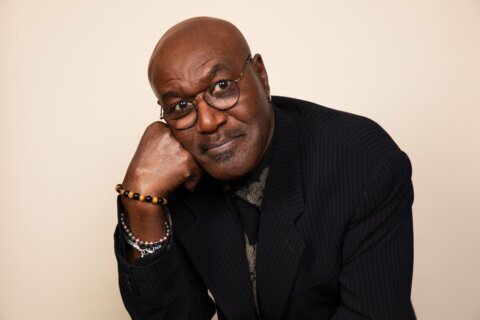WASHINGTON — No genre explores America’s complicated past better than the western.
What other canvas paints such gorgeous landscapes against such searing social commentary, showing our internal struggle between adventure and domestication, rugged individualism vs. communal civilization, all while admitting the original sins that contradict our highest ideals?
Enter writer/director Scott Cooper with his latest take “Hostiles,” which opens in D.C. next Friday after making its local premiere last fall at the Middleburg Film Festival in Virginia.
Set in 1892, the story follows Army captain Joseph J. Blocker (Christian Bale), who reluctantly escorts Cheyenne chief Yellow Hawk (Wes Studi) and his Native American family out of New Mexico through dangerous territory back to their tribal lands in Wyoming. Along the way, he encounters grieving mother Rosalie Quaid (Rosamund Pike) reeling from a Comanche raid.
The film is worth seeing alone for its two commanding leads: Bale and Pike. Cooper has a history of eliciting great performances, directing Jeff Bridges to an Oscar in “Crazy Heart” (2009) and coaching Johnny Depp as Whitey Bulger in the underrated “Black Mass” (2015). In “Hostiles,” he reunites with his “Out of the Furnace” (2013) star Bale, who carries the film with conflicted emotion, as past wounds collide with present morality to create future possibilities.
Still, it’s Pike who steals the show in a harrowing turn that’ll make you ask why she didn’t win for “Gone Girl” (2014), just as Glenn Close lost for “Fatal Attraction” (1987). In “Hostiles,” her distraught mother bleeds pain from every pore, convincing us that she is catatonic, in denial, suicidal and searching for faith amid the madness: “Sometimes I envy the finality of death.”
This grief, of course, comes from an opening scene that is extremely hard to watch, as a group of Comanches raids her homestead and slaughters her entire family — infant and all. To say it isn’t for the faint of heart is an understatement. It’s extraordinarily brutal, punching us straight in the gut right off the bat and making us question the necessity of the violence.
Cooper intentionally follows this scene of Native American violence against white settlers with a scene of white frontiersman abusing Native American captives. This back-to-back imagery sets the tone for the film’s chief theme: that there were hostiles on both sides of this conflict. Over the course of the next 134 minutes, we watch to see if these characters can overcome their prejudices like John Wayne’s Ethan Edwards in John Ford’s “The Searchers” (1956).
In addition to the thematic similarities, there are also directorial homages to Ford, namely figures appearing in homestead doorways. Cinematographer Masanobu Takayanagi (“The Grey”) composes exquisite wideshots of silhouetted horses moving across the horizon, giving us the epic breadth that we expect from the genre. Likewise, Cooper equally masters the intimate, using symbolic light and shadow to show who is evil as Ben Foster is tied to a tree.
As for the script, it’s puzzling the way that Foster’s antagonist is discarded by Cooper, who adapts from Donald Stewart’s story. The script spends plenty of pages building Foster up as a vicious foil for Bale’s evolving morality, only to suddenly discard of him off screen without any audience satisfaction. We’re glad he bites the bullet, but his death is the one we’d like to see.
Most underwhelming is the way the script sags down the stretch. After such an arduous journey hoping and praying the group will reach their homeland, the film doesn’t quite end there. In fact, there are too many false endings, making us think the story is over three or four different times. A rewrite could have scrapped the final shootout in Wyoming and cut straight to the train station, which is a great final scene that says so much with visual storytelling.
Overall, there’s enough gorgeous images, symbolic direction, poignant themes and powerful performances to recommend “Hostiles;” I just won’t fault you if you’re hostile to the violence.









